News
-
 Genetics
GeneticsA 5,000-year-old mass grave harbors the oldest plague bacteria ever found
DNA from an ancient strain of the plague-causing bacterium could help uncover the origins of the deadly disease.
By Bruce Bower -
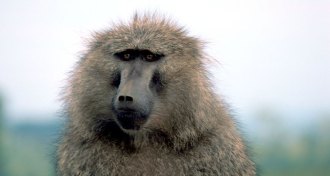 Health & Medicine
Health & MedicineBaboons survive 6 months after getting a pig heart transplant
A team of German scientists used new methods to successfully transplant genetically modified and fully functioning pig hearts into baboons.
-
 Particle Physics
Particle PhysicsA controversial sighting of dark matter is looking even shakier
Two dark matter experiments disagree despite using the same type of detector material.
-
 Astronomy
AstronomyAstronomers find far-flung wind from a black hole in the universe’s first light
The detection of black hole winds far from their host galaxy could reveal details of how galaxies and black holes grow up together.
-
 Health & Medicine
Health & MedicineIn a first, a woman with a uterus transplanted from a deceased donor gives birth
After receiving a uterus from a deceased donor, a woman gave birth to a healthy girl in December of 2017.
-
 Physics
PhysicsScientists’ collection of gravitational waves just got a lot bigger
The biggest black hole merger yet seen created one set of the spacetime ripples.
-
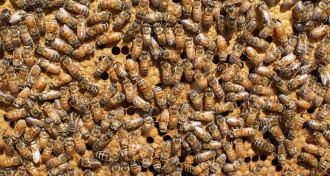 Animals
AnimalsRebel honeybee workers lay eggs when their queen is away
A honeybee queen’s absence in the colony triggers some workers to turn queen-like and lay eggs, sometimes in other colonies.
By Yao-Hua Law -
 Planetary Science
Planetary ScienceNASA’s OSIRIS-REx spacecraft has finally arrived at asteroid Bennu
Planetary scientists hope the probe will reveal if such carbon-rich asteroids helped kick-start life on Earth.
-
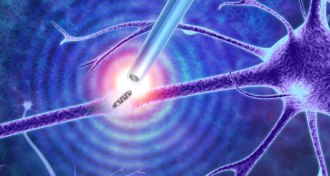 Life
LifeThese new tweezers let scientists do biopsies on living cells
Nanotweezers that can pluck molecules from cells without killing them could enable real-time analysis of the insides of healthy and diseased cells.
-
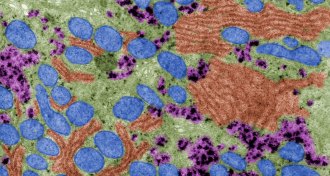 Life
LifeDads, not just moms, can pass along mitochondrial DNA
Data from three families suggest that in rare cases children can inherit mitochondria from their fathers.
-
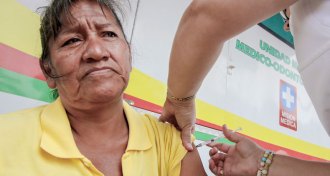 Health & Medicine
Health & MedicineAround the world, reported measles cases jumped 31 percent in 2017
While the number of reported measles cases has dropped 80 percent from 2000 to 2017, high profile outbreaks pushed the 2017 total up from 2016.
-
 Environment
EnvironmentAn acid found in soil may make a disease killing deer less infectious
An incurable neurodegenerative disease crippling North American deer, elk and moose may be thwarted by an organic soil compound.